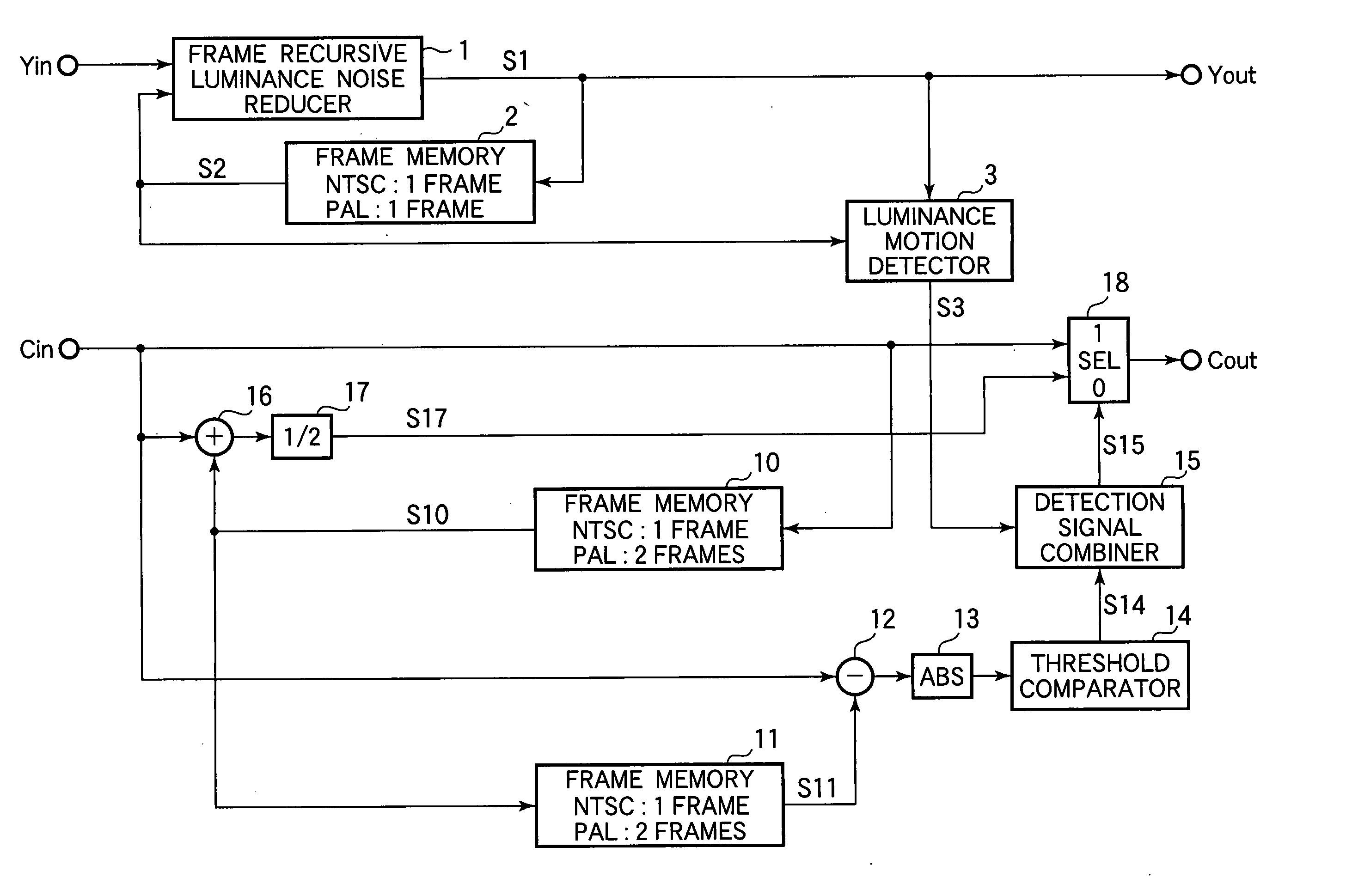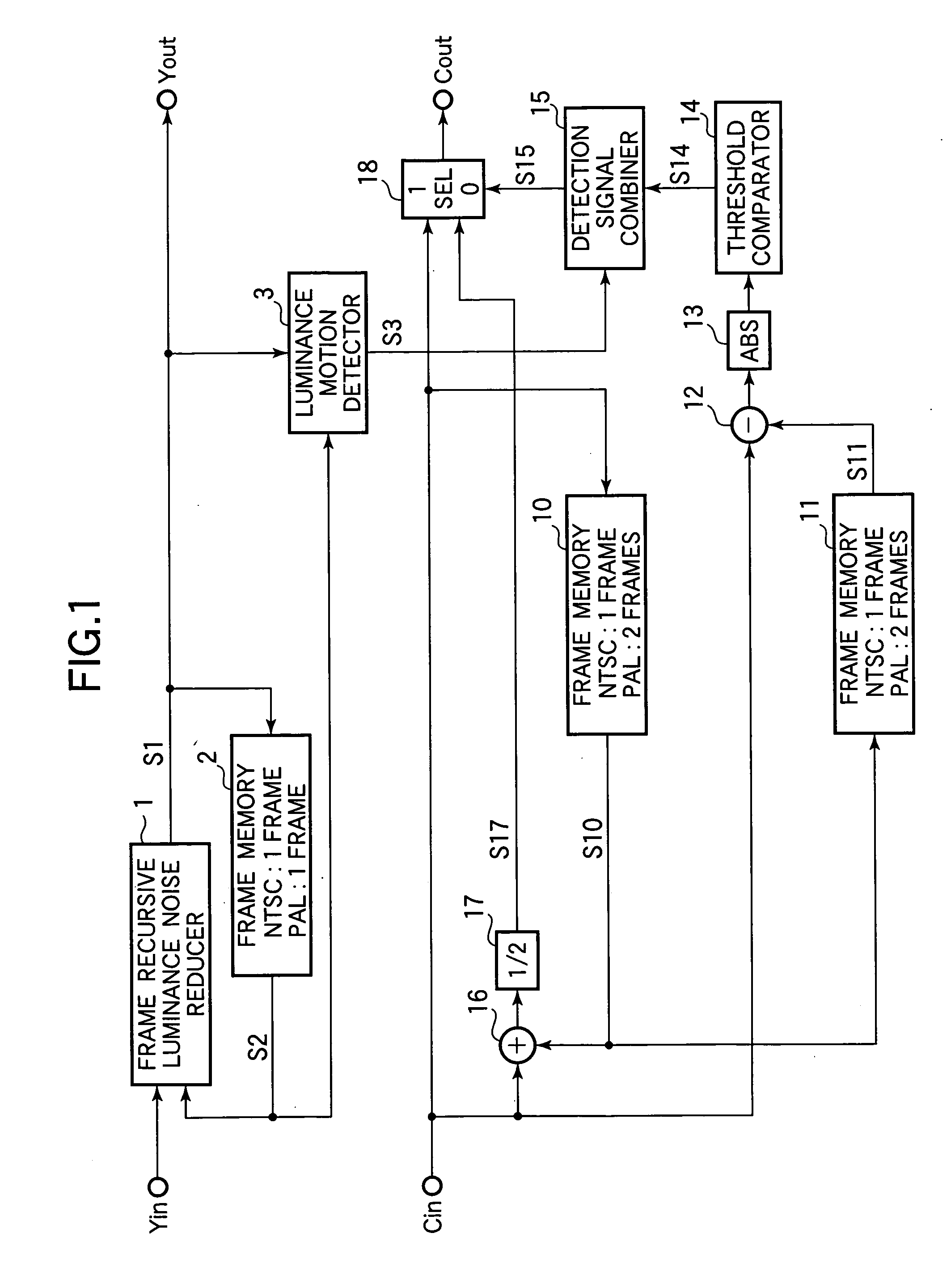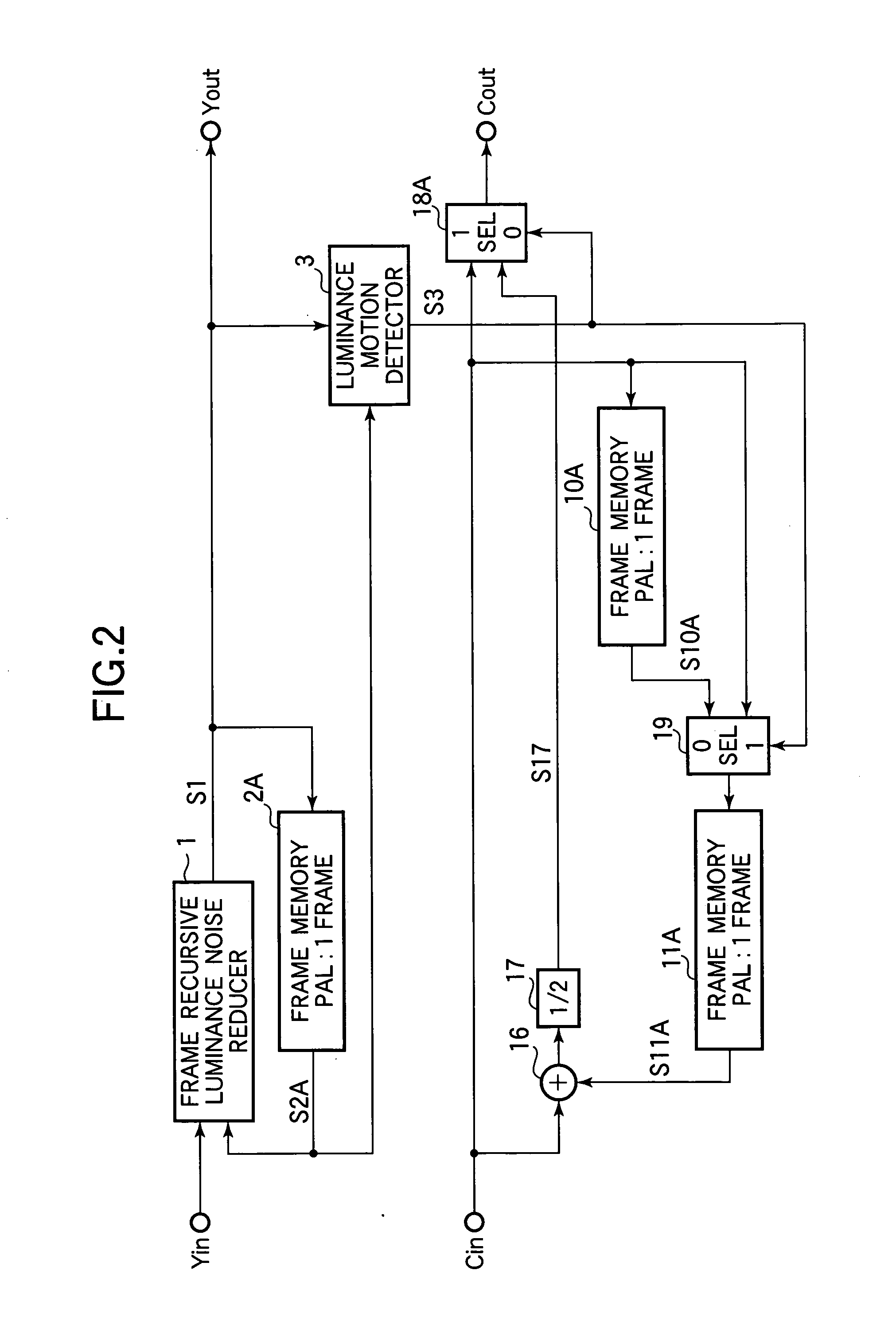Video signal processor
- Summary
- Abstract
- Description
- Claims
- Application Information
AI Technical Summary
Benefits of technology
Problems solved by technology
Method used
Image
Examples
first embodiment
[0034] Referring to FIG. 1, the video signal processor receives luminance input signal data Yin and color difference input signal data Cin as digital input video signals. A luminance signal noise rejection section removes noise from the luminance input signal data Yin and outputs a noise-free luminance output signal data Yout. A cross-color rejection section removes cross-color noise from the color difference input signal data Cin and outputs a color difference signal Cout that is free of rainbow patterns and other unwanted cross-color effects.
[0035] The luminance signal noise rejection section includes a frame recursive luminance noise reducer 1, a first video data memory (in this embodiment, a frame memory 2) connected between the output and input of the frame recursive luminance noise reducer 1, and a luminance motion detector 3 connected to the output terminal of the frame memory 2.
[0036] The frame recursive luminance noise reducer 1 removes noise in accordance with the algebr...
second embodiment
[0051] The second embodiment of the invention provides a video signal processor that processes PAL signals. Referring to FIG. 2, the video signal processor receives PAL luminance input signal data Yin and color difference input signal data Cin as input video data. A luminance signal noise rejection section removes noise from the luminance input signal data Yin and outputs a substantially noise-free luminance signal Yout. A cross-color noise rejection section removes cross-color noise from the color difference input signal data Cin and outputs a color difference signal Cout.
[0052] The luminance signal noise rejection section includes a frame recursive luminance noise reducer 1, a first video data memory (in this embodiment, a frame memory 2A), and a luminance motion detector 3. The frame recursive luminance noise reducer 1 and luminance motion detector 3 are identical to the corresponding elements in the first embodiment. The frame memory 2A stores the PAL luminance output signal da...
third embodiment
[0080] The third embodiment of the invention provides a video signal processor that processes NTSC signals. Referring to FIG. 3, the video signal processor receives NTSC luminance input signal data Yin and color difference input signal data Cin as input video data. A luminance signal noise rejection section removes noise from the luminance input signal data Yin and outputs a substantially noise-free luminance signal Yout. A cross-color noise rejection section removes cross-color noise and random noise from the color difference input signal data Cin and outputs a substantially noise-free color difference signal Cout.
[0081] The luminance signal noise rejection section includes a frame recursive luminance noise reducer 1, a first video data memory (in this embodiment, a frame memory 2B), and a luminance motion detector 3. The frame recursive luminance noise reducer 1 and luminance motion detector 3 are identical to the corresponding elements in the first embodiment. The frame memory 2...
PUM
 Login to View More
Login to View More Abstract
Description
Claims
Application Information
 Login to View More
Login to View More - R&D
- Intellectual Property
- Life Sciences
- Materials
- Tech Scout
- Unparalleled Data Quality
- Higher Quality Content
- 60% Fewer Hallucinations
Browse by: Latest US Patents, China's latest patents, Technical Efficacy Thesaurus, Application Domain, Technology Topic, Popular Technical Reports.
© 2025 PatSnap. All rights reserved.Legal|Privacy policy|Modern Slavery Act Transparency Statement|Sitemap|About US| Contact US: help@patsnap.com



